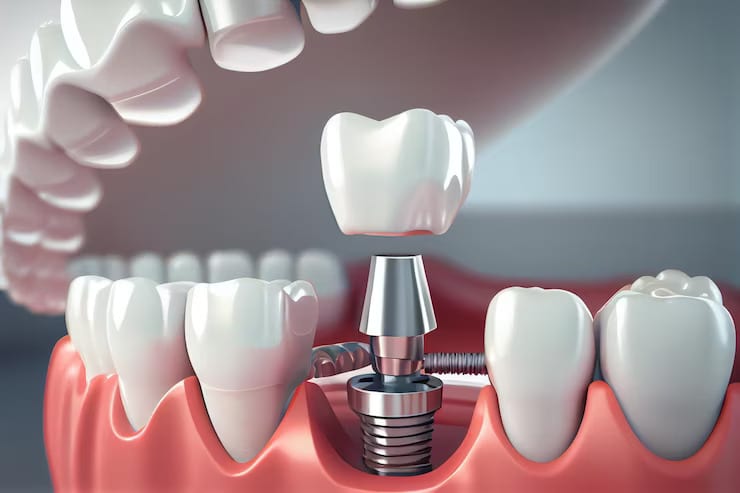Movements like talking, chewing, smiling, and laughing are guided by your temporomandibular joint or TMJ. This is an important joint that acts as a sliding hinge connecting the jawbone to your skull.
Los Gatos TMJ dentist can help you ease pain and discomfort through several therapies discussed further.
Wondering what causes TMJ dysfunction?
There could be several causes of TMJ dysfunction or disorder which include:
- Joint inflammation (arthritis)
- Physical trauma
- Improper bite
- Stress and anxiety
- Malaligned teeth
- Teeth grinding or clenching (bruxism)
- Certain connective tissue diseases like scleroderma and lupus
Depending on the underlying cause, your dentist can design a unique treatment plan.
Read on, to know the symptoms associated with TMJ dysfunction
TMJ symptoms may vary widely and may include:
- Severe, persistent jaw pain
- Facial pain
- Radiating pain in the neck and shoulders
- Jaw popping or clicking
- Difficulty opening or closing the mouth
- Headaches, toothaches, and earaches
- Malocclusion
The following diagnostic tests can aid the dentist in early detection of TMJ dysfunction
Your dentist can diagnose TMJ disorders while routine dental or physical examination. The range of motion during opening and closing your mouth will be carefully assessed. This intricate assessment testing is known as jaw tracing.
Furthermore, the following imaging tests will also be ordered to determine the extent of joint damage:
- Dental X-ray
- CT (Computed Tomography) scan
- MRI (Magnetic Resonance Imaging)
Relieving pain and discomfort through different therapies
In some cases, your TMJ symptoms can subside without treatment. However, if the symptoms persist your dentist may recommend the following treatment options.
Splint therapy or oral appliance therapy
This is the most convenient therapy to relieve TMJ symptoms like pain. These devices relieve pressure from the muscles surrounding the TMJ. It helps relax the muscles and the joint. However, this therapy may fail to address the underlying structural dental issues.
Orthodontic mediation
Orthodontic treatment aids to correct underlying causes of TMJ disorder such as overbite, underbite, and open bite. Your dentist may use braces to correct malocclusion as well as problems like crowding of teeth.
Complete oral rehabilitation
Oral rehabilitation can solve all your dental problems like bruxism, malocclusion, etc.
Your dentist can use a combination of the above treatments to achieve fast and the best results.
Bottom line
TMJ dysfunction can occur as a result of trauma, infections, or any mechanical stress to the joint. Pain and discomfort caused due to joint inflammation can negatively impact oral health and life.
However, fortunately, there is a wide variety of treatment options, helping dentists ease your TMJ symptoms so that you do not have to compromise on your quality of life.





